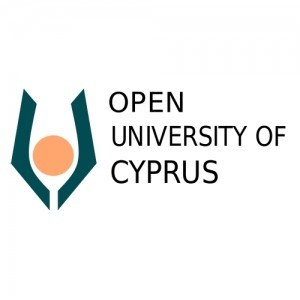Photos of university / #cornelluniversity
The Bachelor of Science in Natural Resources at Cornell University offers students a comprehensive education focused on the sustainable management and conservation of natural environments. This program prepares students to address complex environmental challenges through interdisciplinary approaches that combine biological, physical, and social sciences. Students will develop a deep understanding of ecosystems, wildlife management, forestry, water resources, and sustainable land use practices. The program emphasizes hands-on learning experiences, including fieldwork, laboratory research, and community engagement projects, to equip graduates with practical skills applicable in various natural resource sectors. Coursework covers topics such as ecology, environmental policy, conservation biology, resource economics, and sustainability science, enabling students to analyze environmental issues critically and propose innovative solutions. The program also emphasizes the importance of ethical considerations and social responsibility in natural resource management. Students are encouraged to participate in internships, research projects, and study abroad opportunities to gain real-world experience and expand their perspectives on global environmental issues. Upon graduation, students are prepared for careers in resource management agencies, environmental consulting firms, non-governmental organizations, research institutions, and governmental policy-making bodies. They may also pursue advanced studies or professional certifications in specialized areas of natural resources. The program fosters a collaborative learning environment, promoting teamwork and communication skills essential for success in the dynamic field of natural resources. With access to Cornell’s extensive research facilities and expert faculty, students receive a rigorous and enriching education that empowers them to make meaningful contributions toward the sustainable stewardship of our planet’s natural resources.
The Natural Resources program at Cornell University offers a comprehensive and interdisciplinary education designed to equip students with the knowledge and skills necessary to address complex environmental and resource management challenges. This program emphasizes the sustainable management of natural ecosystems, including forests, water bodies, wildlife, and mineral resources, through scientific principles and innovative approaches. Students gain a solid foundation in ecology, conservation biology, environmental policy, and resource economics, enabling them to develop effective strategies for preserving and utilizing natural resources responsibly. The curriculum integrates coursework in earth sciences, environmental planning, wildlife management, and geographic information systems (GIS), providing students with practical analytical and technological skills. Experiential learning is a key component of the program, with opportunities for fieldwork, internships, and research projects that allow students to apply theoretical concepts in real-world settings. The program also encourages interdisciplinary collaboration, fostering a holistic understanding of the social, economic, and ecological dimensions of natural resource issues. Graduates are prepared for careers in environmental consulting, natural resource management, conservation policy, sustainable development, and research. They can work with government agencies, non-profit organizations, private companies, or pursue advanced studies in related fields. The faculty members are experts in forestry, wildlife biology, hydrology, environmental economics, and policy, providing students with mentorship and cutting-edge knowledge. By completing this program, students will develop critical thinking, problem-solving, and communication skills essential for leading efforts to balance human needs with ecological integrity. The program's aim is to promote sustainable stewardship of the planet's vital ecosystems and resources for future generations.
The Bachelor of Science in Natural Resources at Cornell University requires students to complete a comprehensive curriculum designed to prepare them for careers in resource management, conservation, and environmental policy. The program mandates the completion of foundational coursework in biological sciences, physical sciences, and social sciences to establish a strong interdisciplinary understanding of natural resources. Students typically start with introductory courses in ecology, geology, and environmental science, which provide essential knowledge about terrestrial and aquatic ecosystems, earth processes, and human impacts on the environment.
In addition to the core sciences, students are required to take courses in resource management, policy analysis, and sustainable development. These courses cover topics such as environmental law, resource economics, land use planning, and conservation strategies, enabling students to develop skills in analyzing and managing natural resources responsibly. The program emphasizes experiential learning through fieldwork, internships, and research projects, encouraging students to apply theoretical concepts to real-world environmental challenges.
Students must also complete coursework in related disciplines such as geography, statistics, and environmental ethics to foster a holistic understanding of the complexities involved in natural resource utilization. Specialized tracks or concentrations within the program allow students to focus on areas like forestry, water resources, wildlife management, or conservation biology, tailoring their educational experience to their career interests.
To graduate, students are typically required to engage in a capstone project or thesis that synthesizes their learning, demonstrating their ability to assess environmental issues and propose sustainable solutions. Additionally, internships with government agencies, non-profit organizations, or private companies are encouraged to provide practical experience and professional development opportunities.
Overall, the Natural Resources program at Cornell University is designed to produce graduates equipped with scientific knowledge, practical skills, and ethical awareness necessary for effective resource management and environmental stewardship. The curriculum is regularly updated to incorporate emerging topics such as climate change adaptation, renewable energy, and ecological restoration, ensuring students are prepared to address current and future environmental challenges.
Financing studies for the Natural Resources program at Cornell University are designed to make higher education accessible and affordable for students from diverse backgrounds. The university offers a range of financial aid options, including scholarships, grants, loans, and work-study opportunities. Undergraduate students can apply for need-based financial aid through the Free Application for Federal Student Aid (FAFSA) and the College Scholarship Service (CSS) Profile, which enables eligibility for federal, state, and institutional aid programs. Cornell’s Office of Student Financial Services provides personalized counseling to help students navigate the financial aid process and explore scholarship opportunities specific to environmental and natural resource disciplines. The university also offers merit-based scholarships that recognize academic excellence, leadership, and commitment to sustainability, which do not need to be repaid. Graduate students pursuing advanced degrees in Natural Resources can access funding through fellowships, research assistantships, teaching assistantships, and dedicated departmental scholarships. These assistantship positions often provide a stipend and tuition remission, reducing the financial burden significantly. Cornell collaborates with government agencies, private foundations, and industry partners to support research initiatives and student projects, sometimes offering additional funding sources. Additionally, students are encouraged to seek external scholarships and grants aimed at environmental sciences and resource management. The university’s commitment to affordability is reflected in its efforts to minimize student debt and promote diversity within the program. Financial aid packages are tailored to each student's needs, ensuring equitable access to education in natural resource management and conservation. Students are advised to submit all aid application materials by deadlines to maximize their eligibility for available funding. Overall, Cornell University strives to provide comprehensive financial support to ensure that talented students can pursue their passion for natural resources without financial hardship.
The Natural Resources program at Cornell University offers students a comprehensive education in the sustainable management and conservation of natural environments. The program emphasizes interdisciplinary learning, combining aspects of ecology, geology, forestry, environmental policy, and resource management to prepare students for careers addressing global environmental challenges. Students gain a solid foundation in scientific principles through coursework in biology, chemistry, and earth sciences, which is complemented by training in policy analysis, environmental law, and economics. The program promotes experiential learning through fieldwork, research projects, and internships, providing practical skills and real-world experience. Graduates are equipped to work in various sectors, including government agencies, non-profit organizations, private industry, and research institutions focused on natural resource conservation, environmental protection, and sustainable development. Cornell’s dedicated faculty are leaders in their fields, offering mentorship and conducting cutting-edge research that often involves collaboration across disciplines. The program also offers specialization options, allowing students to tailor their education towards specific interests such as forestry, wildlife management, or environmental policy. Students are encouraged to participate in field stations, study abroad programs, and interdisciplinary projects to expand their perspectives and expertise. The university’s commitment to sustainability is reflected in the curriculum, research initiatives, and campus operations, reinforcing the importance of responsible resource use. Graduates of the Natural Resources program are recognized for their analytical skills, environmental consciousness, and leadership abilities, making them valuable contributors to efforts aimed at balancing human needs with ecological sustainability. The program’s combination of rigorous academic training and practical experience prepares students for a successful career in natural resource management, environmental policy, or further graduate study.









